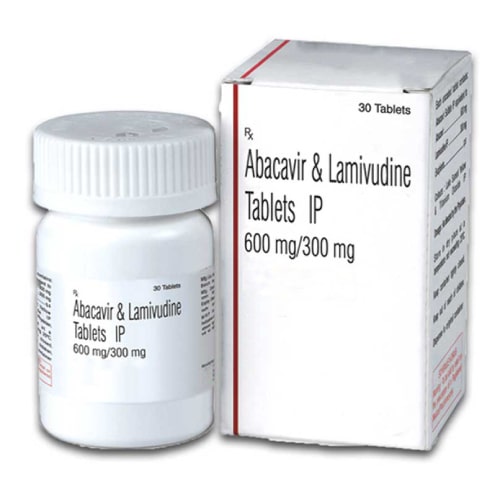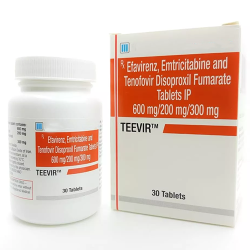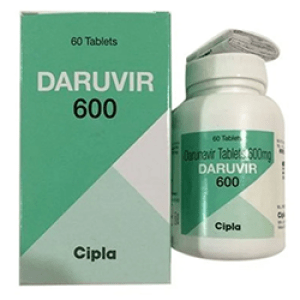Description
Uses of medication:
Abacavir and lamivudine is a fixed-dose tablet, in combination with other antiretroviral agents, are used for the treatment of human immunodeficiency virus type 1 (HIV-1) infection.
Dosage:
The recommended dosage of abacavir lamivudine combination medicine for adults and pediatric patients weighing at least 25 kg is 1-Tablet (600mg/300mg) taken orally once daily, in combination with certain other antiretroviral agents, with or without food.
Because abacavir/lamivudine tablet is a fixed-dose tablet and cannot be dose adjusted, it is not recommended for:
- patients with creatinine clearance not beyond 50mL per minute.
- patients with mild hepatic impairment. This FDC medicine is contraindicated in patients with moderate/severe hepatic impairment.
- drug hypersensitivity
- insomnia
- nausea
- diarrhea
- fatigue/malaise
- dizziness/vertigo
- headache/migraine
- depression/depressed mood
- Abacavir/lamivudine tablets are contraindicated in patients who have the HLA-B*5701 allele, in patients with known hypersensitivity reaction to abacavir or lamivudine, and in patients with moderate/severe hepatic impairment.
- Clinical and laboratory evidence of exacerbations of hepatitis has appeared after the interruption of lamivudine. Closely monitor patients for both clinical and laboratory follow-up for at least some months after stopping abacavir lamivudine 600 mg treatment.
- Safety and efficacy of medicine lamivudine have not been assessed for treatment of chronic hepatitis B in subjects dually infected with HIV-1 & HBV. Emergence of hepatitis B virus variants associated with resistance to lamivudine have been observed in HIV-1-infected subjects who have been treated with lamivudine-containing antiretroviral regimens in the presence of concurrent infection with hepatitis B virus.
- Lactic acid build up in the bloodstream and severely enlarged liver with steatosis, including fatal cases, have been seen with nucleoside analogues, including abacavir 600 mg & lamivudine 300 mg (components of abacavir and lamivudine tablets). A maximum of these cases have been seen in women. Female sex and obesity are the risk factors for this development in patients treated with antiretroviral nucleoside analogues.
- Immune reconstitution inflammatory syndrome may occur in patients taking treatment with cART, including abacavir and lamivudine. During the initial phase of cART, patients whose immune systems respond may develop an inflammatory response to indolent or residual opportunistic infections (such as cytomegalovirus, Mycobacterium avium infection, Pneumocystis jirovecii pneumonia, or tuberculosis), which may necessitate further assessment and treatment.
- Autoimmune disorders (Graves’ disease, polymyositis, and Guillain-Barr¡SR syndrome) may also occur in the setting of immune reconstitution, however, the time to onset is more variable, and can occur several months after initiation of Abacavir 600 mg/ Lamivudine 300 mg treatment.
- As a precaution, the underlying risk of coronary heart disease needs to be considered when using antiretroviral therapies (ARTs), including abacavir, and action considered to minimize all modifiable risk factors (hypertension, diabetes mellitus, hyperlipidemia, smoking).
- Patients are advised that there is a pregnancy exposure registry that monitors pregnancy outcomes in women exposed to abacavir and lamivudine during pregnancy. Women with HIV-1 positive should avoid breastfeeding because the infection can be passed to the baby in breast milk.



